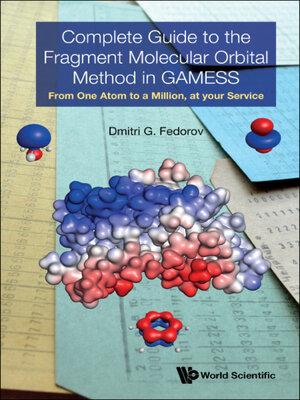Complete Guide to the Fragment Molecular Orbital Method In Gamess
ebook ∣ From One Atom To A Million, At Your Service
By Dmitri G Fedorov

Sign up to save your library
With an OverDrive account, you can save your favorite libraries for at-a-glance information about availability. Find out more about OverDrive accounts.
Find this title in Libby, the library reading app by OverDrive.



Search for a digital library with this title
Title found at these libraries:
| Library Name | Distance |
|---|---|
| Loading... |
The fragment molecular orbital (FMO) method is a fast linear-scaling quantum-mechanical method employed by chemists and physicists all over the world. It provides a wealth of properties of fragments from quantum-chemical calculations, a bottomless treasure pit for data mining and machine learning. However, there is no user-friendly description of its usage in the widely employed quantum-chemical open-source software GAMESS, nor is there any book covering the usage of GAMESS in general. This leaves very many interested users to their own devices to get through a variety of problems with very cryptic descriptions of keywords in the program manual and no guide whatsoever as to what options should be set for particular scientific tasks. This book is the panacea to many frustrations.The main focus of the book is to build a solid bridge connecting FMO users to GAMESS, by giving a helpful introduction of various FMO methods as needed for particular problems found in computational chemistry, and describing in detail how to do these simulations and understand the results from the output of the program. The book also covers parallelization strategies for attaining high parallel efficiency in massively parallel computations, and provides means to analyze performance and design a solution for overcoming performance bottlenecks. A special section is devoted to dealing with problems in executing GAMESS, arising from computational environment and user errors. Finally, 14 carefully selected types of applications are discussed in detail, describing the input keywords and explaining where to find the main results in the text-based output.







